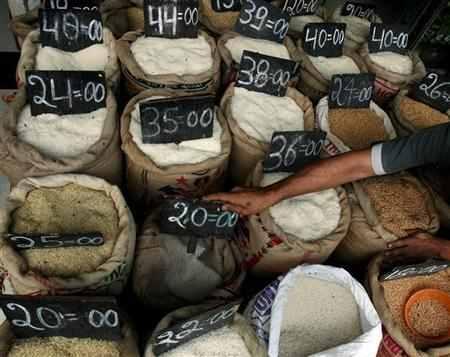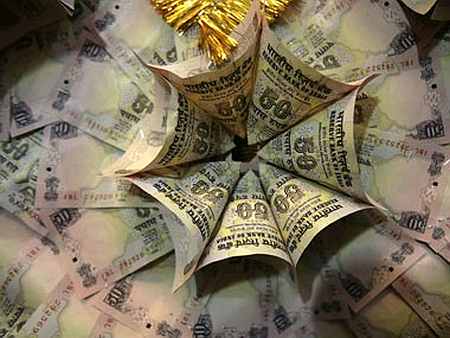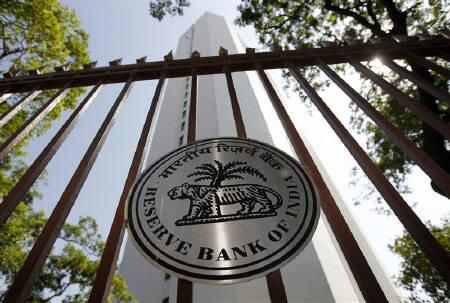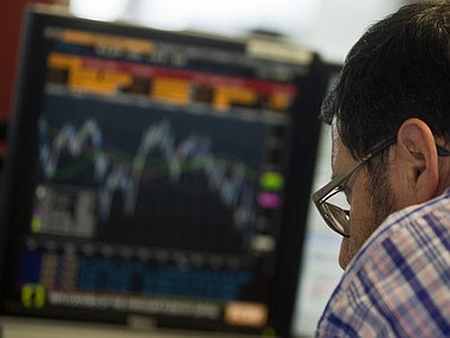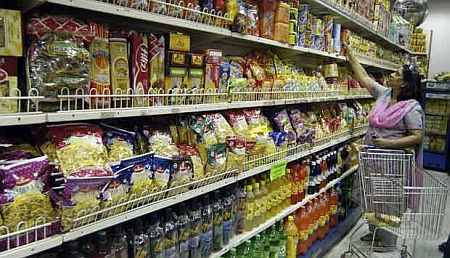 | « Back to article | Print this article |
The curious case of rising prices
Inflation is hurting the people and our economy. Though, we in India do not want to dwell much on global commodity price spirals, but that does not make us immune to them, says Shreekant Sambrani.
Like the Americans in Vietnam in the 1970s, D Subbarao, governor of the Reserve Bank of India (RBI), recently declared victory and started withdrawing his armoury of rate hikes.But his "victory" was no more real or famous than that of the Americans. Subbarao was careful to talk of only core inflation, and acknowledged persisting "upside risks". And he had good reason to be wary.
The March retail inflation figure, announced the day after his claims, was, at 9.5 per cent, 0.6 percentage points higher than the previous month's.
I had my own numerous close encounters with price rises in the preceding week.
Click NEXT to read more...
The curious case of rising prices
First, Amul raised its price by five per cent. Its managing director, who had the misfortune of learning economics from me three decades ago, said this was meant to help dairy farmers combat inflation.
My savouries vendor raised prices by 25 per cent, citing rising oil prices. My cell phone use, as per my normal pattern, would now cost between 200 and 400 per cent more. BSNL hiked the landline tariff by 80 per cent.
My train trip from Vadodara to Mumbai was 10 per cent dearer. Airlines raised cancellation fees by 50 per cent and Mumbai cab fares were up 10 per cent -- all in merely three weeks and without the benefit of the excise and service tax increases of the Budget.
Click NEXT to read more...
The curious case of rising prices
But this is not about my travails with inflation. Our economic climate since the spring of 2007, when foodgrain prices started their journey northwards, has created an imbalance in market power between buyers and sellers, to the great disadvantage of the former.
Sellers now enjoy a virtual licence to raise prices at will, claiming to recover their higher costs. Whether this claim bears scrutiny is of little concern.
Prices of prescription medicines (up to five or ten per cent), parking at malls and multiplexes, school texts, toiletries, or detergents – none of which use inputs subject to inflationary pressures – routinely rise quarter after quarter.
They do not contribute sizeably to anyone's budget or headline inflation. They, however, illustrate a new market mindset that threatens even mainstream activities.
Click NEXT to read more...
The curious case of rising prices
The RBI's persistent efforts over the last three years to restrict money supply only led to the litany of inflation being moderated soon, much like the Jewish Diaspora's hopes of "next year in Jerusalem". The root cause has been supply pressure.
We in India do not want to dwell much on global commodity price spirals, but that does not make us immune to them.
Jeremy Grantham, a commodity market analyst who has earned unimpeachable credibility by running a profitable commodities fund, wrote in a startling newsletter last April that prices of all commodities excluding oil had fallen by over 70 per cent in the 100 years preceding 2002, but had risen sharply in the next decade to more than make up this fall.
Click NEXT to read more...
The curious case of rising prices
They were firmly on an uptrend, puncturing earlier uninterrupted growth forecasts. He concluded that most commodities – not only oil and mineral resources, but also food and water – would go up in price and be available in smaller quantities. The world trade in commodities would not be a win-win proposition, rather a win-lose one.
Only Akash Prakash ("Global commodities and India," Business Standard, May 27, 2011) referred to Grantham. Following Grantham, we would have discovered that it was not just oil that was increasing in value and volumes of import, but also coal and other minerals, as has now been revealed by the March foreign trade data.
Not only did food prices rise due to vagaries of the monsoon, but they reflected a global trend.
Click NEXT to read more...
The curious case of rising prices
Short-term spikes (upwards in 2010, downwards in 2011) following weather fluctuations affected mainly seasonal vegetable crops. But even in the otherwise competitive horticulture market, the impact of skewed market power is now becoming evident.
Thomas Sargent's 2011 Nobel-honoured theory of rational expectations explains this partially. Every supplier feels the pressure of rising prices of her purchases. She naturally raises, or tries to increase, the price of what she supplies.
Others also think likewise, and the price increase bandwagon starts rolling as soon as a few players seem to be getting away with it.
Click NEXT to read more...
The curious case of rising prices
The response of competitors to adopt a collusive strategy stems from their rational expectation that if prices are rising anyway, they must also cash in on the opportunity. Competition gives way to (perhaps unpremeditated) collusion. Suppliers benefit, consumers lose, and inflation persists.
Inflation due to collusive behaviour catches consumers and policy makers by stealth, and is that much harder to deal with.
It is not even readily identifiable. Our inflation fighters or their brains trusts are seldom exposed to the situations I have discussed.
Click NEXT to read more...
The curious case of rising prices
They don't buy their tickets, nor do they choose their phone plans, nor buy vegetables or milk. They should follow Harun al-Rashid and make these transactions incognito at regular intervals.
That would not affect their well-being, but would show them how "stealthflation" creeps up and hurts.
The three things that hurt a people and their economy most are inflation, inflation and inflation -- and India today is inflation from head to toe (with due apologies to The Dirty Picture)
The writer taught at the Indian Institute of Management, Ahmedabad, and helped set up the Institute of Rural Management, Anand.
